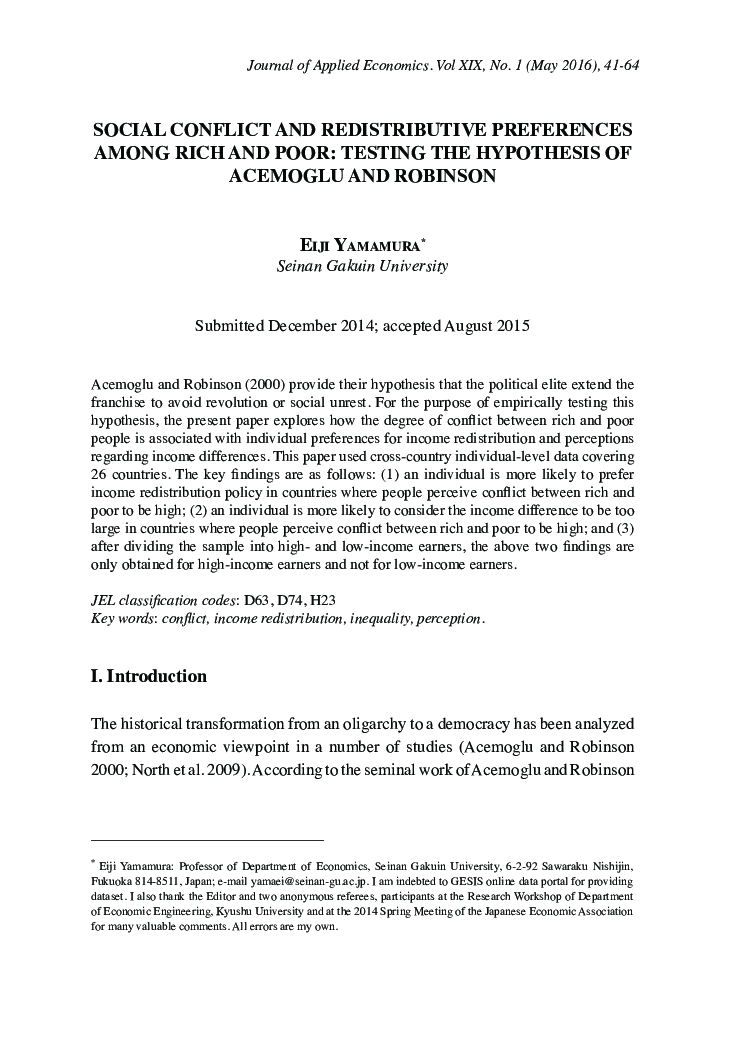| Article ID | Journal | Published Year | Pages | File Type |
|---|---|---|---|---|
| 7356142 | Journal of Applied Economics | 2016 | 23 Pages |
Abstract
Acemoglu and Robinson (2000) provide their hypothesis that the political elite extend the franchise to avoid revolution or social unrest. For the purpose of empirically testing this hypothesis, the present paper explores how the degree of conflict between rich and poor people is associated with individual preferences for income redistribution and perceptions regarding income differences. This paper used cross-country individual-level data covering 26 countries. The key findings are as follows: (1) an individual is more likely to prefer income redistribution policy in countries where people perceive conflict between rich and poor to be high; (2) an individual is more likely to consider the income difference to be too large in countries where people perceive conflict between rich and poor to be high; and (3) after dividing the sample into high- and low-income earners, the above two findings are only obtained for high-income earners and not for low-income earners.
Related Topics
Social Sciences and Humanities
Economics, Econometrics and Finance
Economics and Econometrics
Authors
Eiji Yamamura,
